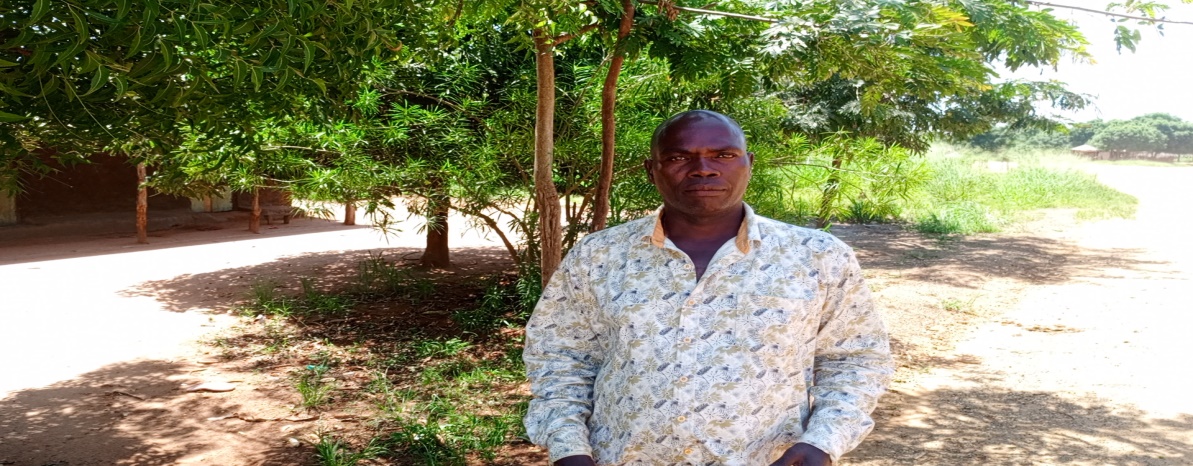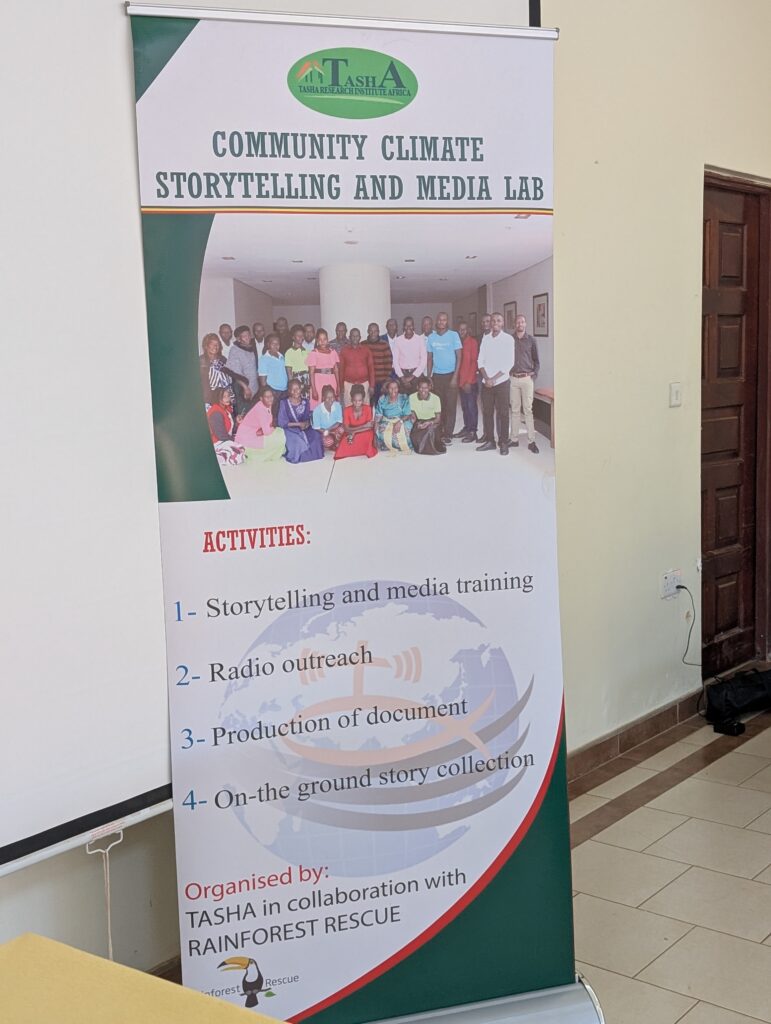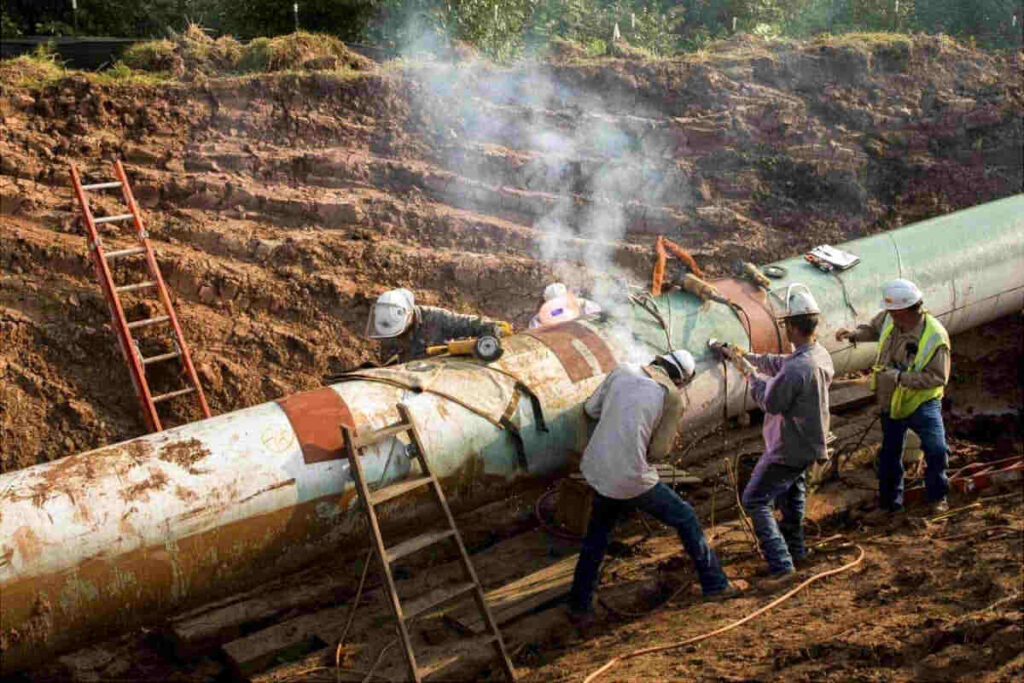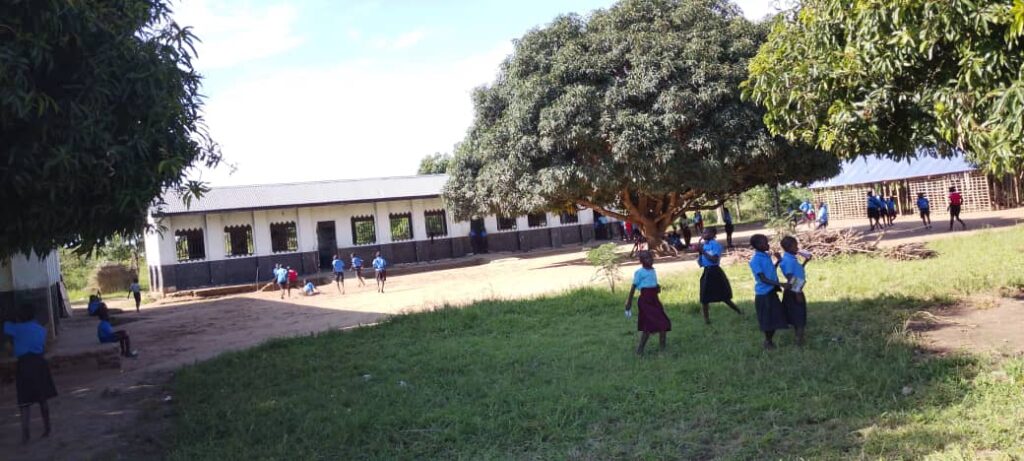In the sweltering quiet of Uduk 1 village in Buliisa District, a man waits. His name is Muhemba Joseph (pictured below during a recent interview with one of our observers), and like many others across the oil-rich Albertine region, he has been caught in the long, bruising shadow of the East African Crude Oil Pipeline (EACOP). Four years ago, representatives from TotalEnergies arrived at his land. They surveyed it, counted his crops—twenty banana stems among them—and told him to wait for compensation. Then, they vanished.
They cleared the land. They destroyed the bananas. But the compensation never came.
Today, Joseph has no assessment forms, no Resettlement Action Plan (RAP) number, and no clear path to justice. “I have no proof of what they took,” he says, standing near the gaping trench that now slices across the edge of his home. “They could deny everything tomorrow.”
And that’s exactly what he fears.

Corporate Extraction, Community Neglect
TotalEnergies, together with its partners, claims the EACOP will bring progress, energy, and economic opportunity. But for people like Joseph, “development” has meant uncertainty, dispossession, and fear. His house now sits dangerously close to the newly carved pipeline access road, a corridor of dust and rumbling trucks. His children, livestock, and even the walls of his home are at risk from the frequent heavy vehicle traffic.
“They made a road here, but not for us. It’s for their trucks,” Joseph says. “We didn’t ask for this. We didn’t agree to this.”
Like many displaced or partially affected persons (PAPs), Joseph has received what TotalEnergies calls “livelihood support”—a few cassava stems and seeds meant to replace the food crops uprooted from his land. But this paltry gesture is no substitute for justice. What Joseph wants is accountability. What he demands is recognition of what was taken, and rightful compensation.
“Give me my assessment forms,” he pleads. “At least let me know what I was supposed to receive.”
Anatomy of Displacement: The Ngwedo Crisis
Joseph’s story is not isolated. During a recent community meeting in Ngwedo Sub County—the area most affected by oil activities in Buliisa—residents raised alarm over a deepening water crisis. With construction polluting traditional water points and no alternative systems provided, entire villages have been left parched and desperate.
Yet the damage isn’t only environmental. It’s social. Field officers from Tasha Research Institute Africa, who have been documenting the situation closely, report a troubling rise in teenage pregnancies in the region. Contractors working for TotalEnergies, many of whom are temporarily housed in the local villages, are exploiting vulnerable young girls with promises of marriage and money. “It’s a silent crisis,” says Richard, one of Tasha’s community field officers. “These girls are being abandoned. Their futures are being stolen alongside the land.”
A System of Injustice by Design
What emerges from these stories is a damning picture of systemic abuse: a multinational company, emboldened by weak oversight, trampling over communities with the same impunity it shows the environment. Compensation, where given, is slow, inadequate, and often opaque. Livelihood “support” is symbolic at best, and misleading at worst. Worst of all, the human cost—trauma, broken trust, and community disintegration—is ignored entirely.
EACOP isn’t just a pipeline. It is a wound, etched into the landscape and the lives of those forced to make way for it.
Tasha Research Institute Africa stands firmly with the people of Buliisa and the Greater Masaka regions. We do not accept the criminalization of poverty or the exploitation of silence. We demand transparency, justice, and reparations—not tomorrow, not after project completion—but now.
Muhemba Joseph is still waiting. So are thousands more.



